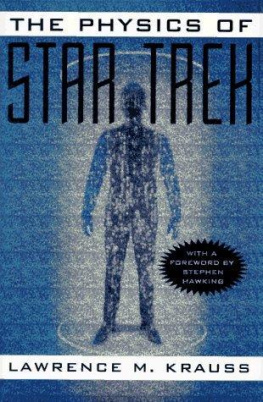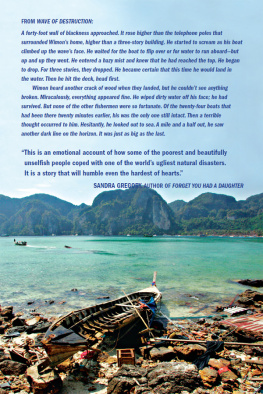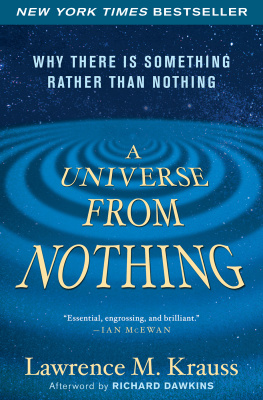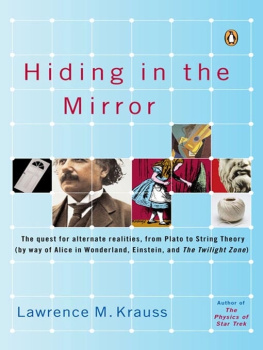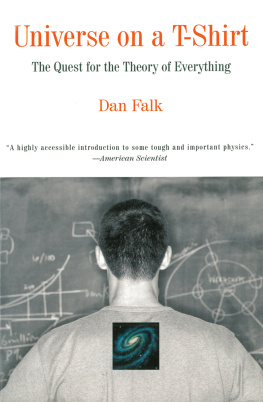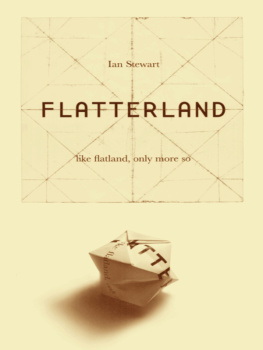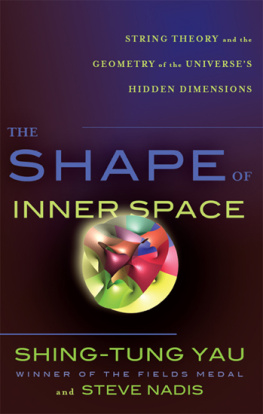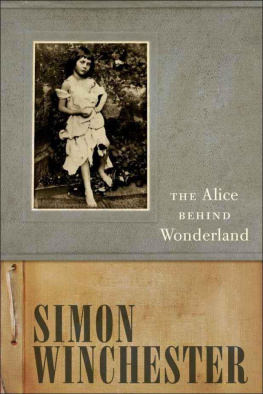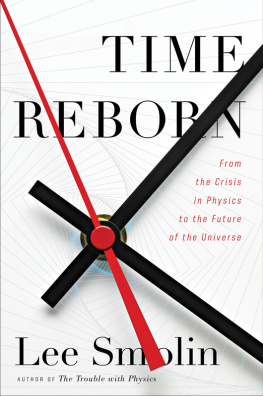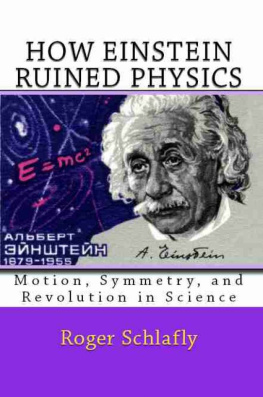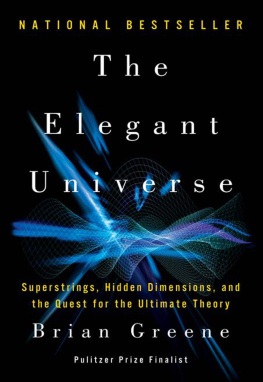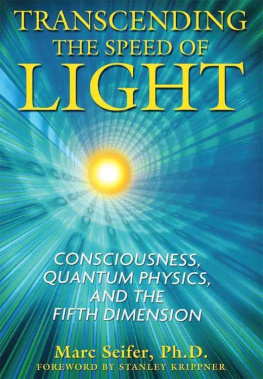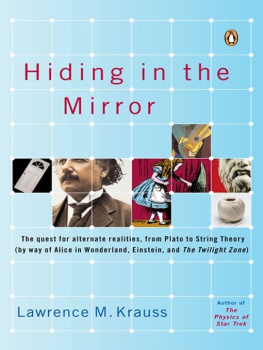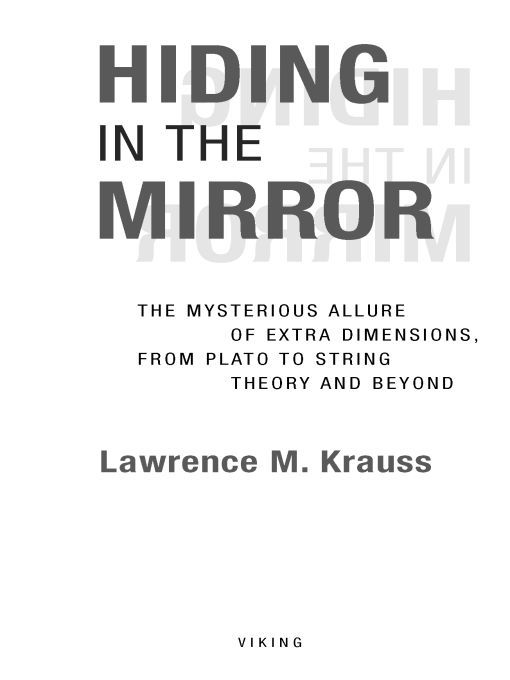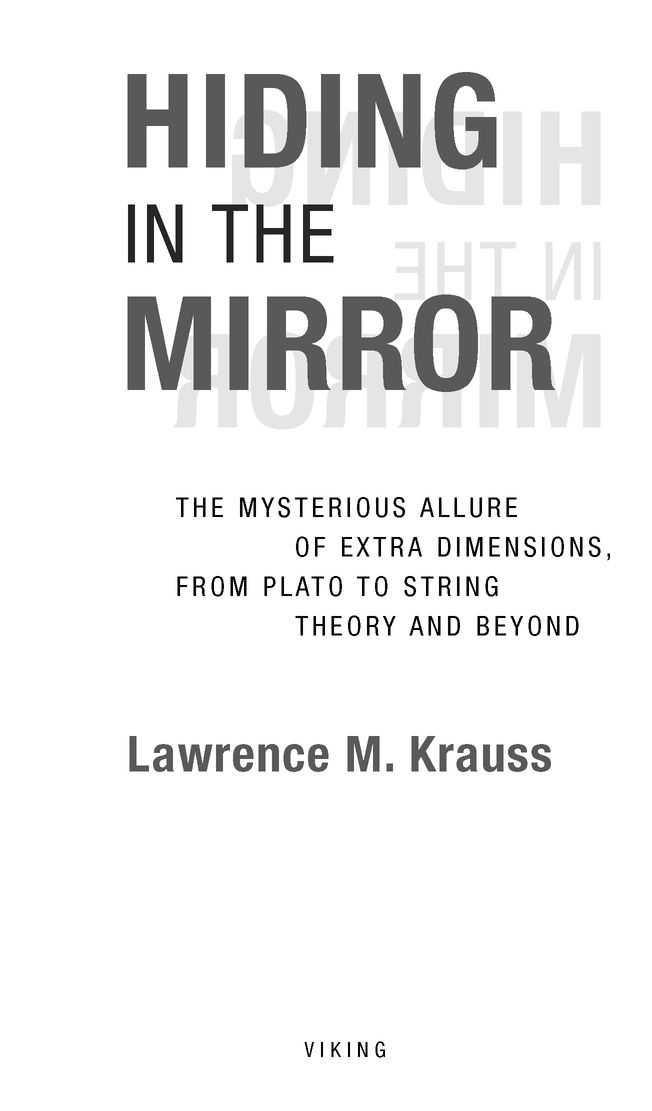Table of Contents
ALSO BY LAWRENCE M. KRAUSS
Atom: A Single Oxygen Atoms Journey from the Big Bang
to Life on Earth... and Beyond
Quintessence: The Mystery of the Missing Mass
Beyond Star Trek: From Alien Invasions to the End of Time
The Physics of Star Trek
Fear of Physics: A Guide for the Perplexed
The Fifth Essence: The Search for Dark Matter in the Universe
For my mother... at last!
There is a dimension, beyond that which is known to man.
It is a dimension as vast as space
and as timeless as infinity.
It is the middle ground between light and shadow,
between science and superstition,
and it lies between the pit of mans fears
and the summit of his knowledge.
This is the dimension of imagination.
Rod Serling, The Twilight Zone
REMINISCENCE
A DIMENSIONAL LOVE AFFAIR
Two parents wake in the middle of the night to sounds of their daughters crying out in the distance. The father rushes to her bedroom and finds her missing. He frantically searches everywhere, slowly coming to the grim realization that she is gone. His wife runs into the room soon afterward, overcome with panic. At his wits end, he dashes out to the living room and picks up the phone and calls a neighbor. He returns to his wife and, in words that are probably unique in the history of television, tells her:
Bills coming over. Hes a physicist! He ought to be able to help!
Forty-two years ago, when I was very young, a Twilight Zone episode called Little Lost Girl scared the living daylights out of me. Touching on every childs fear of being separated from the safety of parents and home, the episode told the story of a little girl who falls into another dimension.
When I first thought about writing a book that might focus on our love affair with extra dimensions, Little Lost Girl came immediately to mind, although I confess I had no memory of the episodes title or when it aired. After a short bit of research on the Web, I was able to locate it, and a few days later, along with forty-two other episodes I had to buy in a Twilight Zone boxed set, it arrived at my door.
That night I placed the DVD into my computer and relived my childhood trauma. The eerie thing was that I remembered everything about the episode... except for the physicist! But suddenly, upon hearing that line of dialogue, a rush of memories came flooding back.
Of course! The physicist was the hero of the episode. He came over in the middle of the night, discovered and traced out the portal in the wall through which the small child and her dog had wandered, guided her father through the gap, and ultimately reached through and saved the father and the terrified duo moments before this door to another dimension closed forever.
I now vividly remember (or I think I remember) being struck by how exotic and powerful Bill the physicists knowledge seemed, and how much respect this knowledge engendered in his frightened neighbor. I, too, wanted one day to be privy to such secrets, and to explain them. I wanted to be the one whom people in distress knew they could count on. In short, the physicist-superhero!
Alas, I have been a physicist for over twenty years now, and except for some students every now and then the night before an exam, no one has sought out my physics expertise when in distress. Nevertheless, I sometimes wonder if I write books such as this to fulfill my desire to provide what Bill had offered his neighbors: insights that physics has revealed about universal human mysteries, such as from whence we came, and what may lie beyond the darkness of the night. Some people seek solace through the spirit, but for others it comes through knowledge.
As Rod Serling, the creator of the Twilight Zone, observed in his weekly introductions beginning in 1959, the human imagination can create whole universes into which we can travel via the depths of despair or the peaks of ecstasy. Ultimately our continuing intellectual fascination with extra dimensions may tell us more about our own human nature than it does about the universe itself.
We all yearn to discover new realities hidden just out of sight. So much so, that we have continually reinvented them throughout human history, whenever the world of our experience has seemed lacking. But this does not necessarily mean that all of these worlds beyond our direct experience are unreal. There are scientists today who truly expect to discover the existence of extra dimensions and perhaps even extra universes in our lifetime.
I originally began this book because I wanted to explore the unique cultural and scientific legacy that has led to our current fascination with exotic new realms that may lie hidden in the mirror. But I never guessed that the voyage could be so personal. I now realize that with seven words heard in a television program some forty-two years ago, my own future may have been determined.
CHAPTER 1
THE PRIVILEGE TO LIVE IN SPACE?
I call our world Flatland, not because we call it so, but to make its nature clearer to you, my happy readers, who are privileged to live in Space.
So begins perhaps the most famous mathematical romance ever written. Penned in 1884, twenty-one years before Albert Einstein revo-lutionized our notions of space and time, under the pseudonym A. Square by the clergyman and Shakespearean scholar Edwin A. Abbott, Flatland was a poignant tale told by a wistful two-dimensional being who had just discovered the miraculous existence of three-dimensional space and longed to enjoy it. The unhappy hero of this saga urged us lucky Spacelanders to recognize the beauty of the higher-dimensional universes that he thus envisaged.
At around the same time that Abbott was writing Flatland, a lonely and tragic artist on the Continent was imagining another universe beyond the realm of our perception. Vincent Van Gogh was a tortured genius who is said to have sold but a single painting in his lifetime. Yet you cannot walk the streets of Amsterdam today without seeing reproductions in storefront windows of his haunting self-portraits or his landscapes with yellow skies and blue earth. In 1882, he wrote to his brother, who was his sole supporter, I know for certain that I have a feeling for color, and shall acquire more and more. Through his paintings Van Gogh freed our minds from the tyranny of color, daring us to imagine everyday objects in a completely different way, and thereby demonstrating that exotic realities could be discovered in even the otherwise most ordinary things. His paintings are haunting not because they are so bizarre but because they are just bizarre enough to capture the essence of reality while at the same time forcing us to reexamine what exactly reality is.
These are the luxuries of art and literature: to create imaginary worlds that cause us to reconsider our place within our own world. Science has comparable impact. It, too, unveils different sorts of hidden worlds, but ones that we hope might also actually exist and, most importantly, can be measured. Nevertheless, the net result is the same: In the end we gain new insights into our own standing in the universe.
All of these creative human activities reflect the essence of human imagination, the spark that raises our existence from the mundane to the extraordinary. If we couldnt imagine the world as it might be, it is possible that the world of our experience would become intolerable.


